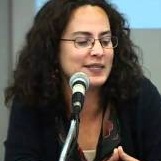 Tune in to the Marc Steiner Show on WEAA 88.9 FM from Monday, May 12th through Friday, May 17th for the special series, Stories of Deindustrialized Baltimore, which traces the boom and bust of the industrial communities of Baybrook and the Sparrows Point Steel Mill.
Tune in to the Marc Steiner Show on WEAA 88.9 FM from Monday, May 12th through Friday, May 17th for the special series, Stories of Deindustrialized Baltimore, which traces the boom and bust of the industrial communities of Baybrook and the Sparrows Point Steel Mill.
Each day at 9am, the stories and memories of community members are threaded together to explore the industrial history and deindustrialized present of each area, how various industries shaped the lives of countless residents and former workers, including their stories of struggle and hardship, and how a sustainable future for these areas can be forged.
Teaming up with the Center for Emerging Media, the series is produced by students at UMBC as part of the larger Post-industrial Places Project (PIPP), which seeks to examine the processes and impacts of deindustrialization in the greater Baltimore region, led by UMBC Professors Steve Bradley (Visual Arts), Bill Shewbridge (Media and Communication Studies), Nicole King (American Studies), and Michelle Stefano (American Studies and Maryland Traditions, the folklife program of the Maryland State Arts Council).








